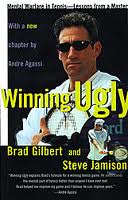How Fear of Failure Can Affect Your Fencing
Fencing has been labeled “physical chess” due to the heavy emphasis on its mental game. A fencer must be able to anticipate, plan, and make proper decisions while coordinating their body at high speeds. While fencers of all different skill levels commonly bout each other, it is often the courageous fencer who is better mentally prepared for their upcoming challenge. Fencers who feel that they may not be able to beat their challenger typically have a defeated mindset before they start competing. Certainly these stressful situations can create feelings of nervousness, doubt, and worry.
Anxiety that occurs before a tournament can be distracting for a fencer. While they are trying to focus on their fencing, they may be thinking about whether or not they are going to win. For a fencer who experiences this quite often, their chances of losing increases, continuing their cycle of self-doubt, inability to focus, and loss.
Some people are not nervous all the time, but only in certain situations, such as competitions. This is called state anxiety and it can be experienced in two ways (Martens et al., 1990). One way is cognitive anxiety, which is when someone has negative thoughts, such as pessimistic self-talk. A fencer might say to herself, “There is no way I’m going to beat her.” Then there’s somatic anxiety, and it occurs when a fencer has physical symptoms of anxiety. This includes butterflies in the stomach, sweating despite lack of exercise, cotton mouth, and/or rapid heart rate.
Some people are anxious all the time, not just at fencing tournaments. This is referred to as trait anxiety because it is a personality characteristic found in a wide variety of situations.
But what makes some competitors nervous while others are not?
While there are many factors that can trigger state anxiety, a recent study focused on one particular form of trait anxiety that could be the culprit. Fear of failure is one form of trait anxiety (Conroy, 2004). Individuals who posses fear of failure are more afraid of losing (or getting something wrong) than feeling as though they are able to succeed to begin with. Athletes high in fear of failure may work really hard because they don’t want to lose. Or, they may avoid a competition all together because they feel too afraid that they will lose. Actions such as these can impair a fencer’s perspective of their abilities, and can inhibit an athlete from reaching their full potential (Conroy, 2001).
Recent research involving fencers from the 2006 USFA Summer Nationals discovered that those fencers who experience high fear of failure are more likely to experience high cognitive anxiety. That is, those fencers who feel that competition is a threat (rather than an opportunity to win) because they might lose, are at an increased risk of suffering from cognitive anxiety.
An interesting conclusion of the same study is that fencers with high fear of failure weren’t any more likely to experience somatic anxiety than fencers who do no have fear of failure. So whether a fencer may or may not have fear of failure, they are still at risk of experiencing somatic anxiety.
Being that fencing is a highly mental sport, psychological factors such as fear of failure can come into play. It can potentially change a fencer’s perspective towards competition and further manifest as cognitive anxiety. These nervous feelings are common, but can be potentially harmful in competitive situations. If you find that fear of failure or state anxiety is a problem for you, here are a few simple tips that you can try:
- Keep a journal of your thoughts. Getting the thoughts out of your head can make room for focusing on your fencing.
- Talk to someone you trust who is a good listener, like your coach or teammates.
- Practice deep breathing techniques. While inhaling, stick your belly out. On the exhale, push your stomach in. Breathe slowly.
- For more serious inquiries, seek the help of a qualified sport psychology consultant.
For additional inquiry, click HERE to view the abstract of the original study. This material is copyrighted, and any reproduction of any kind must be obtained through written permission of the researcher.
References
Conroy, D. E. (2001). Fear of failure: An exemplar for social development research in
sport. Quest, 53, 165-183.
Conroy, D. E. (2004). The unique psychological meanings of multidimensional fears
of failing. Journal of Sport & Exercise Psychology, 26, 484-491.
Martens, R., Burton, D., Vealey, R., Bump, L., & Smith, D. (1990). The
development of the Competitive State Anxiety Inventory – 2 (CSAI-2). In R. Martens, R. S. Vealey, & D. Burton (Eds.), Competitive anxiety in sport (pp.117-190). Champaign, IL: Human Kinetics.



